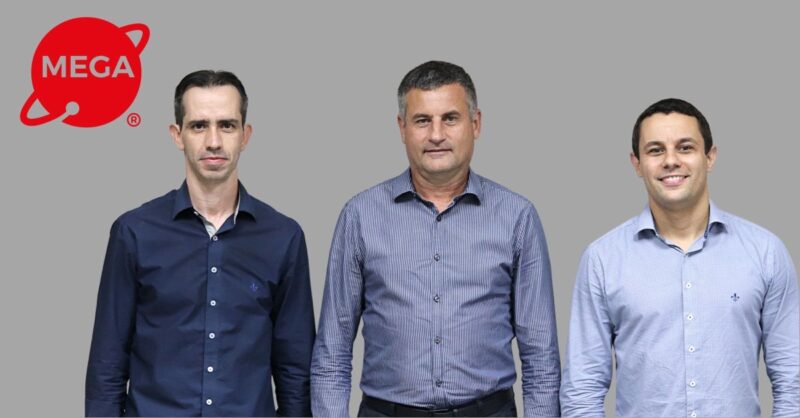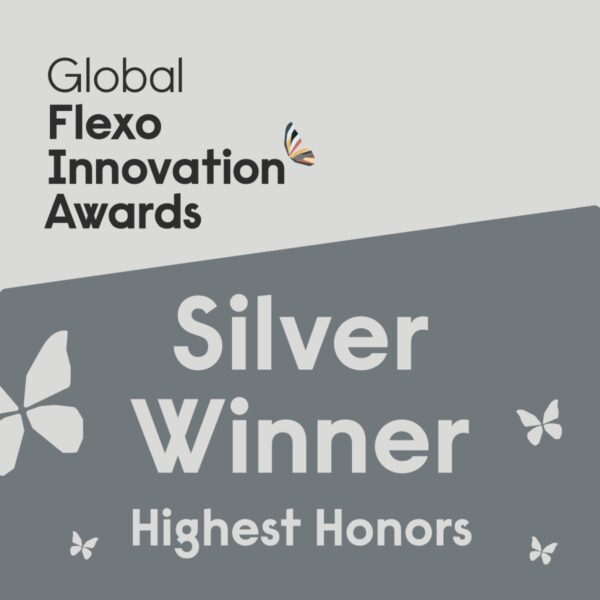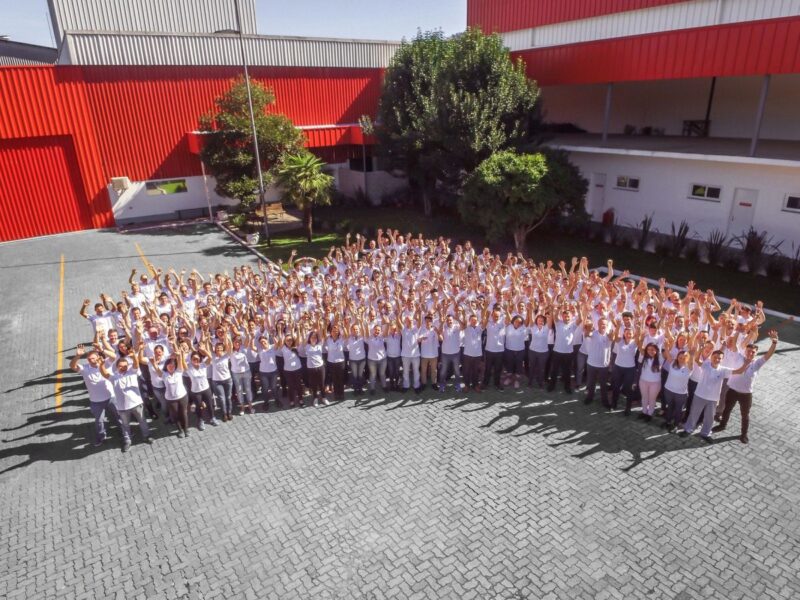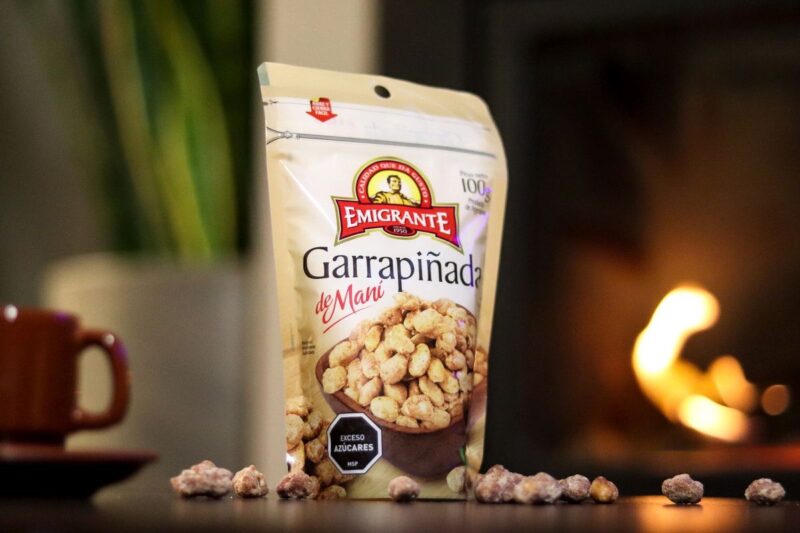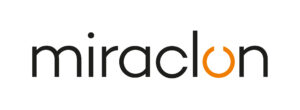“As soon as we saw what’s possible with extended color gamut production using KODAK FLEXCEL NX Plates, we knew we’d found the perfect tool to improve manufacturing time and reduce costs, without compromising on quality.”
Roberto Gräf, Sales Director of Brazilian flexible packaging producer Mega Embalagens, is looking back to 2018 and the start of a technology journey that culminated in a Silver Award at the Global Flexo Innovation Awards, sponsored by Miraclon, won for Creative Use of Graphic Design and an innovative Print Production Workflow — all thanks to its implementation of ECG using FLEXCEL NX Technology. The company was also one of only four entrants awarded Highest Honors by the judges to recognize companies that demonstrated the biggest impact on advancing the flexo printing process.
A winning approach to job-ganging
In 2018, after the initial testing yielded what he describes as “record production benefits and high-quality results”, the company decided to commit wholeheartedly to implementing ECG using FLEXCEL NX Plates. Four years on, the award-winning job showcases what Mega Embalagens can offer clients using ECG. In this case, the client — a Uruguayan brand owner — wanted to relaunch its dried fruit line with a radical redesign of the packaging. Instead of a clear, unprinted package, the proposal was a printed stand-up doypack bag, representing a major step forward in on-shelf visual impact, and offering these consumers a package they could easily open and reseal easily while also seeing the product through a window located on the back of the package.
A major challenge in the relaunch was producing short runs of the new pouch for test marketing at the lowest unit price. Mega Embalagens and its partners combined a unique approach to job-ganging (four separate images ganged two-by-two on a four-out form) with an ECG workflow using FLEXCEL NX Plates. Analysis of the designs showed they could be printed using five colors (CMYK + White) instead of the 28 colors (seven colors x four SKUs) required conventionally. This approach optimized color while eliminating three printing set-ups and a total of 23 plates.
From family operation to international business
Mega Embalagens is a family business founded in 1993 initially to package animal proteins. The company maintains its first-generation family management, but today the focus is on pet food, food, and personal care.
Currently, Mega Embalagens has considerable success in exports to both the United States and Europe, according to Gustavo Gräf, commercial manager: “We have been operating in the US for a long time. The European market is very similar to the US; a competitive market that receives goods from all over the world, where competition with Chinese products and products made in Eastern Europe is strong. In Europe, but we win business not only because of our quality and technology, but also because we continuously strengthen our sustainability credentials. We also believe that customers abroad have the same expectations as our Brazilian clients, so we’ve invested in all the necessary logistics and technical support to provide an international service.”
Four pillars of sustainability
The company’s sustainability investments are based on four pillars to differentiate Mega Embalagens from its competitors, explains Gustavo. “The first pillar is the use of post-consumer resins (PCR) in secondary packaging materials. Second, we produce 100% recyclable packaging that has the same protection barrier and appearance as conventional packaging, replacing multi-material laminated structures and in line with the circular economy. Third, we replace fossil-based materials with renewable ones – one of the alternatives is green polyethylene from sugarcane, for example. Finally, we also work with biodegradable materials.”
The company’s main markets all share certain trends, Gustavo continues. “Quality remains critical — so it’s our responsibility is to produce packaging that stands out in those few seconds in which the consumer decides to buy, or not.”
Mega Embalagens is one of only three Brazilian suppliers to have the BRC Packaging Materials Grade AA Certification, a globally recognized standard for packaging quality and the first recognized by the Global Food Safety Initiative.
As well as the trend for more SKUs produced in shorter runs, consumers’ consumption profiles are changing rapidly. “They want greater convenience in packaging, with more sophistication, so there’s an emphasis on features like seals and ‘easy-open-and-close’ options. Because fast turnarounds are also critical, we installed indicators that analyze all our processes with the aim of finding places where we can cut time. So, the moment an order comes in, we have a clear idea of what has to happen in each department to meet the deadlines.”
ECG with FLEXCEL NX Plates — increased productivity, consistency and ink savings
Currently, ECG jobs account for around 50% of production, and the share is growing. “These jobs are all printed with FLEXCEL NX Plates,” says Roberto Auricchio, Prepress Manager, listing an impressive range of benefits that the technology delivers. “Our plate consumption is much lower, and with ECG we can reproduce special Pantone colors using a fixed ink palette of seven colors — CMYK + OGV. This reduces downtime between jobs, because we don’t change the inks, just the plates. We also get big productivity gains — press set-up is faster, and cleaning between jobs is significantly reduced. We can also gang together different jobs using the same stock.”
He adds: “The stable density ratio the FLEXCEL NX Plates provide allows us to transfer ink correctly and consistently, so we can take on more challenging jobs — for example, using smaller text, or replacing Pantone colors with more confidence in the ECG. And we use significantly less ink, of course.”
Huge quality and resolution improvements
Roberto Gräf testifies to the huge improvement in quality and resolution since adopting FLEXCEL NX Plates: “A few years ago, we were working with 39 lines, but today many clients demand higher resolutions. So, we’ve standardized on 52 to 60 lines, regardless of the packaging size. But with FLEXCEL NX Technology we can go up to 120 lines of resolution in the matrix, so as demand keeps increasing, we can migrate work upwards without a problem.”
He acknowledges that converting brand owners to a radically different production solution such as ECG can be challenging. “At first, there were understandable concerns about whether we could convert their Pantones to ECG and ensure colors matched their expectations. But as they saw the results — both the production efficiencies and the quality achieved — any doubts went away.”
He adds that ECG also entails a culture change for the company’s press operators. “They have to understand it’s a new process, where jobs are no longer separated between process colors and Pantones. So, we constantly invest in training, because any variation from process colors will impact the packaging. Attention to detail and knowledge is essential.”
Looking to the future, he sees bright prospects for ECG. “Once we convince clients to try the ECG approach, they tend to stay with the process because they see the tremendous advantages over conventional production. And word is getting around, too. We regularly get brand owners approaching us and asking ‘What’s this ECG I keep hearing about?’”
